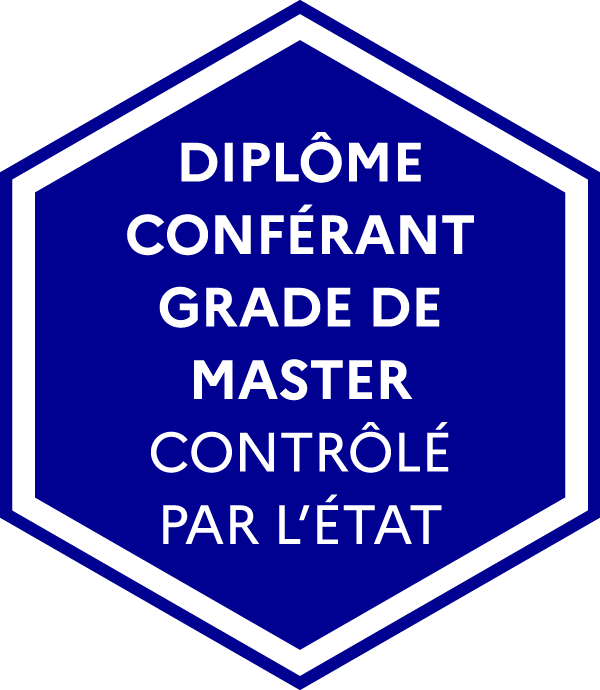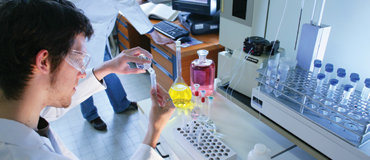Overview
Master's Degree in Engineering
National Master of Engineering Degree- Degree awarded Master
- Graduation year Bac + 5
- Graduation level Level 7
-
Available as
- Initial education
- Continuing education
Summary
The Advanced Materials (AM) degree contains two orientations related to two European international Master degrees:
- AMIS (Advanced Materials for Innovation and Sustainability) labeled by the EIT Raw materials
- FAMEAIS (Functional Advanced Materials and Engineering) labeled by the Erasmus Mundus Joint Master Degree of Erasmus+.
Each student must choose the orientation she/he will integrate.
The main objective is the education of engineers who have not only state-of-the-art training in Materials Research, but also are exposed to the international and interdisciplinary dimension of modern Materials Science, while developing advanced skills and awareness to societal and industrial needs.
Students’ mobility is an integrated part of the two-year program, during which they will study at two of the consortium partner universities. Upon completion of the program, students will receive a double degree (Phelma engineering diploma and a Master of Science).
Further information
-
Training partners
CompaniesAcademic partners & associated laboratories:
Admission
- Who should apply? Bac + 2, Bac + 3, Bac + 4
-
Available as :
- Initial education
- Continuing education
Entry requirements
Conditions d’admission/Entry requirements
Same text as in all other filiere e.g. Biomed
Entry requirements
- To be admitted into Year 1 (at two years of post-secondary study), students must have completed two years of preparatory courses (science-track or Institute of Technology common preparatory program) or have earned an undergraduate degree from a university (in France, mainly DUT or L2).
- Admissions on qualifications to the 2nd year (France and abroad)
Program
- Internships abroad
Program
All the courses will be taught in English.
M1
M2
International
- Internship abroad Yes
- Erasmus areas Chemical engineering
International mobility
International exchange
MOBILITY SCHEME
- Mobility between year 1 and 2 in two institutions from different countries of each consortia.
- 3 semesters within the Consortium universities + 1 semester for the Master Thesis in a European research laboratory or among the associated partners.
Prospects
- Graduation year Bac + 5
- Graduation level Level 7
Expected learning outcomes
Expected learning outcomes
Soft and hard skills such as: project management, team work, entrepreneurship and oral communications, in-depth understanding of specialist topics such as nanophysics, nanomaterials and functional materials, research and hands-on skills.
Careers
Academic career/research
At universities, research institutions, teaching students or managerial position. Scientist with high commercialization awareness, knowledge, and competences; someone who can communicate effectively the commercial value of their scientific research.
Resource industry
SMEs in chemistry, exploration, green energy, machinery and plant construction, metal working industry, ceramics, environmental economy (R&D, product development, management, production, marketing and sales). Expert or manager whose actions and decisions influence the innovation output, value creation, and performance of the company.Freelancer and entrepreneur
Create your own business or become a consultant.Wider society
Science journalism, consulting, project development and management, advisor to policy makers, administration, specialist agencies, media etc.Further learning opportunities
Further learning opportunities
The program will prepare you to explore the angles for technological, social changes and where the niches for new business ideas are in the market. Contacts with industries and research institutes will prepare you to develop your own activities and develop your own business, join the industry or start a PhD focused on Materials challenges.
The developed skills and knowledge you will gain will be highly appreciated by industries in the Materials Science domain or by Laboratories, especially in the following sectors: Microelectronics, Optics, Bio-technologies, Energy, Communication, Environment, etc.
French State controlled diploma conferring a Master's degree

Dowload
Contacts
- master.amis@grenoble-inp.fr
- contact@fame-master.eu
- Program manager: Annie Antoni



